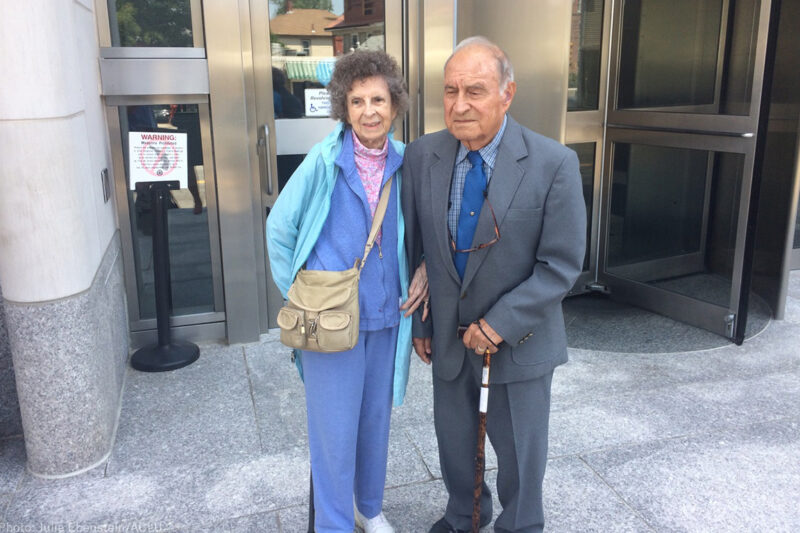Court Strikes Down New Hampshire Law That Disenfranchised Voters Over Handwriting


On Tuesday, a federal judge struck down a New Hampshire law that disenfranchised hundreds of voters each general election because of their handwriting. The law in question required election moderators to compare the signature on a voter’s absentee-ballot application to the signature on an affidavit that the voter sends with the absentee ballot. If the election official felt that that the signatures did not match, they would simply throw out the vote.
In the ruling, U.S. District Judge Landya McCafferty called the process, “fundamentally flawed,” finding that it violates the Equal Protection Clause of the Fourteenth Amendment to the U.S. Constitution because the law did not provide voters with notice and an opportunity to be heard before they were disenfranchised.
Under the law, New Hampshire voters were not informed of the decision that their signatures do not match or given an opportunity to address it before their vote is discarded. This is exactly what happened to our client Mary Saucedo, a 95-year-old woman who is legally blind and requires the help of her husband Gus to fill out her ballot. In 2016, an election moderator determined that Mary’s signatures did not match and threw out her vote without notification. It was one of the rare times Mary was not able to participate in the democratic process since 1944, when she first voted in a presidential election.
Disenfranchisement does not only violate individuals’ constitutional rights — it can impact close elections. At least two voters at the Laconia Rehabilitation Center were disenfranchised during the 2016 general election because of the signature-match law. The Senate District 7 race — which covers Laconia — was decided by only 17 votes and, in fact, was subject to a recount. During the recount, the secretary of state took the position that he did not have the authority to overturn the moderator’s decision to reject these ballots due to “signature mismatch.” As the court noted, “[T]he likelihood of error . . . is only compounded by the lack of meaningful review or oversight.”
The court also agreed, “It cannot be emphasized enough that the consequence of a moderator’s decision—disenfranchisement—is irremediable.”
While the state cannot give people back their 2016 votes, as ordered by the court, New Hampshire can no longer enforce the unconstitutional law. New Hampshire cannot match signatures under the unconstitutional provision unless the legislature passes a new law that provides voters with adequate notice of an issue with their ballot and gives them an opportunity to correct the problem, instead of just rejecting their vote with no process. This will mean that hundreds more voters will have their votes counted and their voices heard in the upcoming election.
But this is not only a problem in New Hampshire. This spring, the ACLU successfully challenged a similar law in California, which had disenfranchised tens of thousands of voters each federal election. As many as 45,000 California ballots may have been discarded in the November 2016 election alone due to a signature mismatch. There have been successful lawsuits in Illinois and in Florida, where the judge found that “the state of Florida has categorically disenfranchised thousands of voters arguably for no reason other than they have poor handwriting or their handwriting has changed over time.”
Given that many states are shifting to voting by mail, it is critical that we take action against signature-match laws that allow voters to be wrongly disenfranchised with zero notice or opportunity to fix the issue before it happens.
As many courts and states are now recognizing, no one should lose their right to vote over penmanship.
Stay informed
Sign up to be the first to hear about how to take action.
By completing this form, I agree to receive occasional emails per the terms of the ACLU's privacy statement.
By completing this form, I agree to receive occasional emails per the terms of the ACLU's privacy statement.

